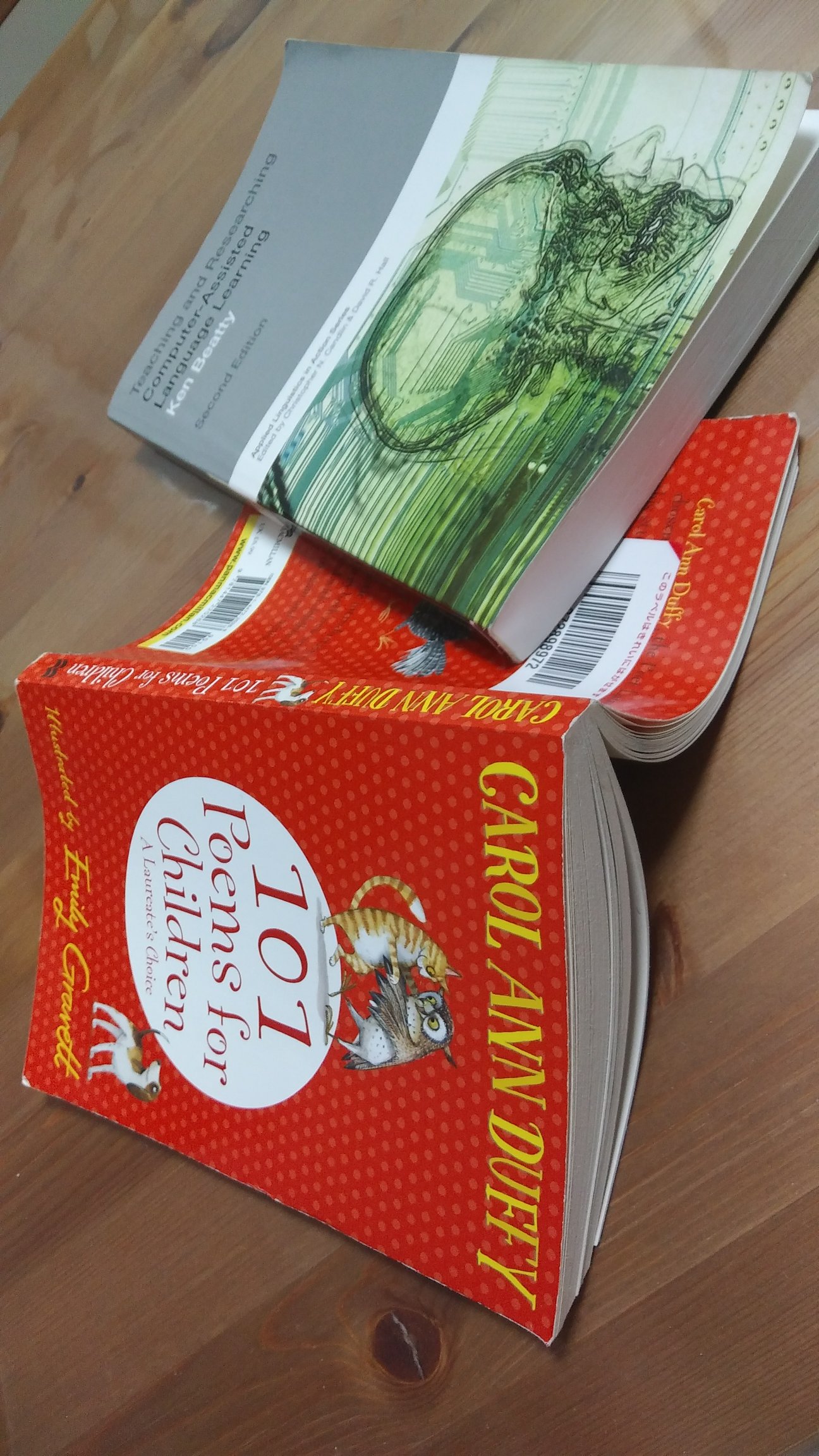
It’s been a good long while since I started this blog and in the meantime I have finished a Trinity DipTESOL and am close to finishing a MA Applied Linguistics & TESOL with Portsmouth University. My Dip was great for the phonology stuff I picked up, and OK for teaching practice (Trinity don’t let you use strong CLT approaches like Dogme or Task-Based Language Teaching with a Focus on Form. You are supposed to teach discrete language points). My MA has been great for access to ideas I might never have come across and, well, library access.
But next steps, Marc? Isn’t the title of this blog Freelance Teacher Self Development? It is. And there will be self-driven development. There are irons in fires and action research projects to fire up.
I have some bits and bobs to send to journals, but I think it would be kind of interesting and perhaps useful for the field of language teaching to have a bit of teacher-based research for teachers, on the internet, gates open, widely participated in. I know peer-review is all the rage, but I think that if we make our mistakes in the open, people can see the limitations of what gets done as well as any merits, and so it’s less a case of the Emperor’s New Clothes but more that jumper that was under some others at the back of the drawer. It’s not something everyone would necessarily be all ‘Wow! Amazing!’ about but perhaps ‘I don’t know if this would work in my setting but nobody would die if anything ended up disappointing me.’ I am a born salesman, I know.
So, here’s the bit I am kind of thinking about: after logging five random lessons starting in October 2017 with the same class, did you teach intonation? Why (not)? If so, how (explanation of method, explicit, differentiated or whole class, etc.) Blog your stuff and we can make it big.
Marc, why intonation?
I like phonology a lot and I’m just finishing something that I needed to think about lot of segmental phonology so suprasegmental is almost a break.
Marc, I want to do something about something else.
That would be fantastic. Let me know because I would be super interested in reading about it.
This is such a stupid idea. People don’t have time.
Maybe. How about people who have the time and want to do it, do it?
Anyway, hit me up in the comments.
 Author: Marc Jones
Author: Marc Jones
Using Photos of Yourself to Teach Vowel Quality
Happy Summer people. I’m procrastinating massively despite a massive marking pile and a dissertation to finish. This was something that came up as a bit of Focus on Form (reactive, explicit language work).
In Japanese /æ/ and /ʌ/ are basically allophonic. They are the same sound to my learners. They hear no difference. I’m too far from the original mistake through overused /æ/ but I had problems getting my students to see the difference between the two phonemes. Having the luxury of a phone, a computer and a projector…

/ʌ/

/æ/
A gormless face is optional. This could also work for /ɪ/ and /iː/, and /ʊ/ and /uː/.
Anyway, just an idea.
On (being off) Twitter
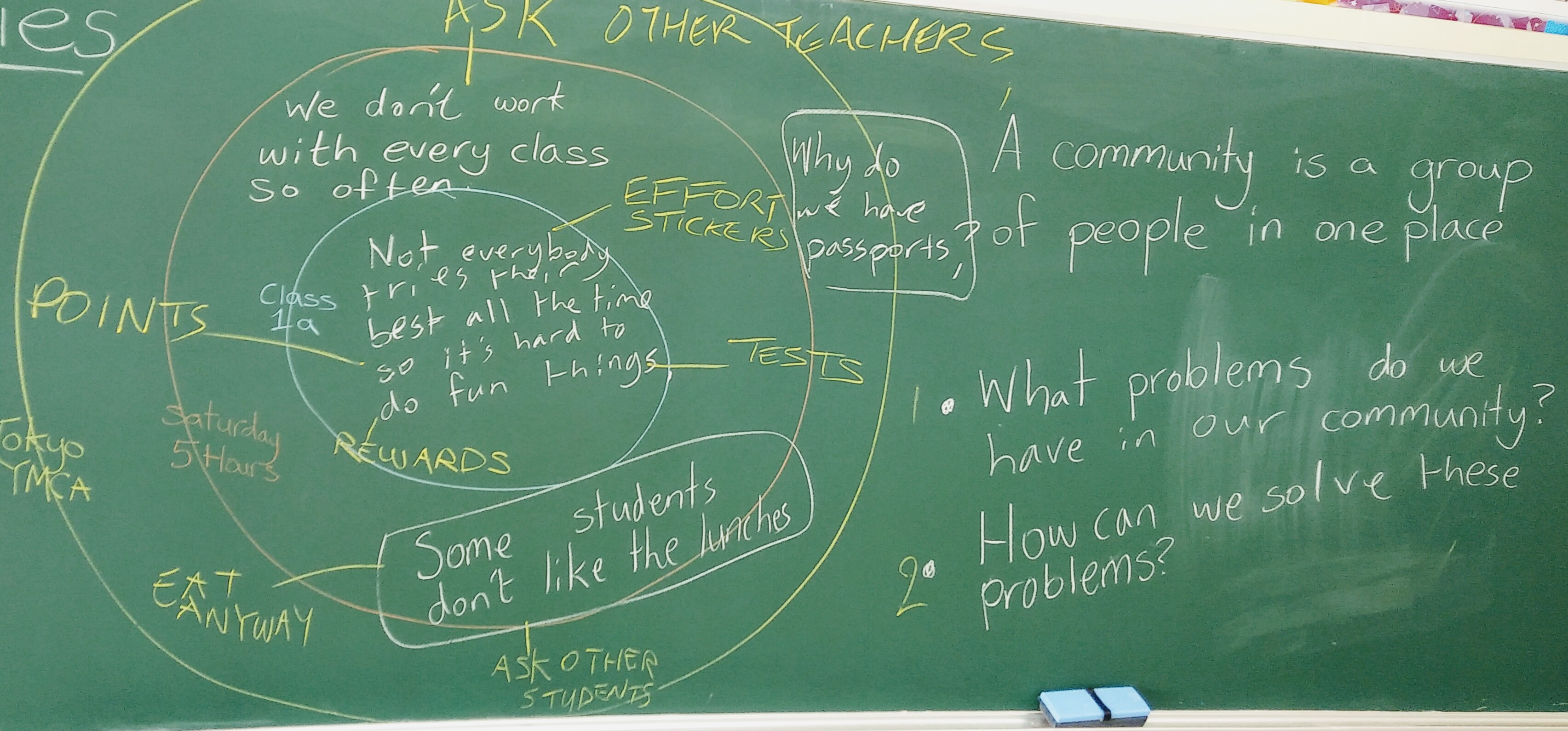 In the past I have described Twitter as ‘my living room’. It was a place (and we can go on about paradigms of representing networked digital media as actual media or as de facto pseudogeographical sites but I would like to keep the word count down and avoid a reference list, so feel free to think of the internet however you want) I enjoyed being in. Unfortunately, I didn’t own it and therefore I had little way of guaranteeing an environment that would always be pleasant.
In the past I have described Twitter as ‘my living room’. It was a place (and we can go on about paradigms of representing networked digital media as actual media or as de facto pseudogeographical sites but I would like to keep the word count down and avoid a reference list, so feel free to think of the internet however you want) I enjoyed being in. Unfortunately, I didn’t own it and therefore I had little way of guaranteeing an environment that would always be pleasant.
In an essay for my MA, I wrote about why Twitter was not a particularly useful website for learners of English (or other languages) and that it would be unwise for teachers to recommend people with vulnerable senses of self – in part due to to the way L2 learning affects one’s identity – to use Twitter. I said that Twitter was good for language teachers’ CPD.
I now disagree with myself. I now think that Twitter is becoming an ever more toxic venue, with ranting being an ever increasing form of discourse. This makes sense for people selling advertising. The more ranting, the more tweets in argument, the more promoted tweets you can insert into the time lines and the more money you can get.
However, what is the effect on our mental health, individually and collectively? When our phones vibrate in our pockets to give us a dopamine hit, does it really help us to build community or does it build dependency upon likes, retweets, confirmation and identity politics dumbed down to hectoring people who operate under different beliefs? I don’t have answers, but anecdotally, I’d say I disliked the person I became when participating in the Twitter ELT community.
So I left with a rant (see a pattern?) of asking people to not be awful to one another and actually try to be nicer. Perhaps this was wrong. The people who are always nice came out to be nice and imploring me to stay (some while carrying on skirmishes created on/made bigger by Twitter). One user asked if it was something he’d tweeted. I was furious and righteous BUT! I knew I had seen something from a perspective that I’d never appreciated before. I could have said, “Yes, it was,” and been correct; but I would have been equally correct had I said, “No, it wasn’t” because while a particular hectoring series of tweets back and forth made me decide that, yes, finally it was time to delete my account on a website that totally sees Nazism as an acceptable point of view but won’t happily tolerate ordinary users tweeting the words ‘fuck’ or ‘shit’ to its verified users, it was simply one incident building up to a sum of many. I then saw more hectoring, gathered email addresses from my direct messages and deleted my account. I never replied, perhaps rudely. But would it have been ruder to call that person an obscene name in the heat of the moment? I think I feel OK being a bit rude instead of being a shitbag, actually.
What makes it worse is that much of the ranting was and is probably still being done by people I respect immensely. Unfortunately, I am too knackered to be able to read much more of it.
So, Twitter, it’s not me, it’s you. It’s your cynical manipulation of people by boosting controversy (hot topics, or things to get irate about) and having absolutely shit community guidelines.
You can find me on Mastodon until that succumbs to the darker side of human nature.
Here be (Dungeons and) Dragons 9
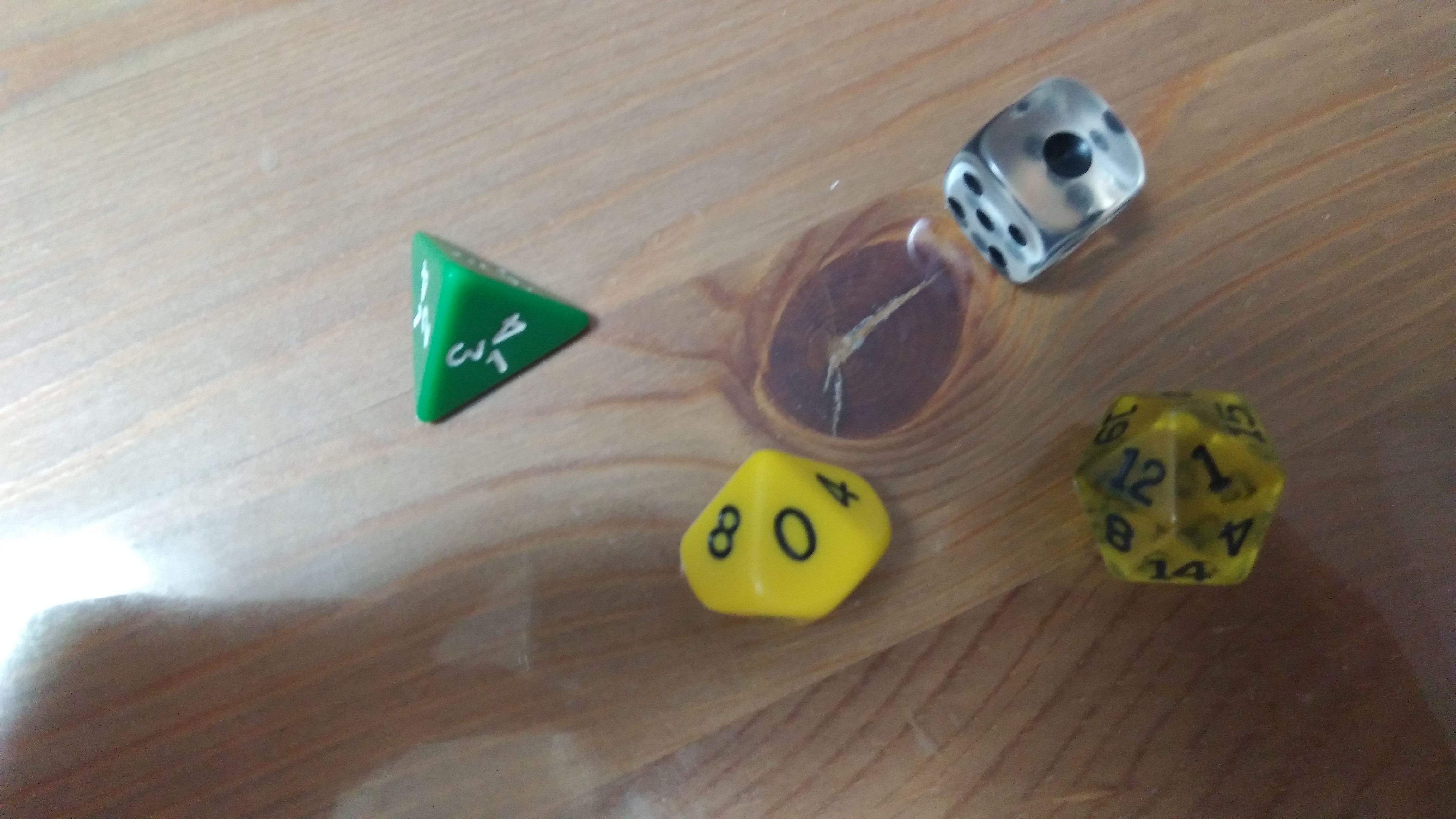
Fin de siecle
At the University of Outside Tokyo my English repeaters have just finished their first RPG. It has, at times, been immensely frustrating due to my own idealism. Surely everyone would love to attend an English course for university if it were structured as a Role-Playing Game! It does not quite work like that, and despite a large improvement in attendance, it appears that I am likely to have students who fail due to lack of work through non-attendance.
I am assessing the course based on participation and quality interaction in the lessons, as well as through a reflective portfolio where students analyse the problems in their roleplays and identify root causes and potential solutions.
However, those that came showed great positivity despite not feeling fond of communicating using English. This is my reward, after dreaming up scenarios, some richer than others, for my students to roleplay through and cast D20s upon.
I am assessing the course based on participation and quality interaction in the lessons, as well as through a reflective portfolio where students analyse the problems in their roleplays and identify root causes and potential solutions. This is done by using recordings to assist in recall. It is essentially cribbed and adapted from James York’s Kotoba Rollers framework. Mostly the portfolios are OK with flashes of brilliant insight. The last class today as used as a portfolio workshop for my students to complete their portfolios. As they worked, the appearance and reappearance of eureka expressions on their faces were my reward. And it is these eureka moments that I hope the students remember, rather than brightly-colored, odd-shaped dice.
Read Here be (Dungeons and) Dragons previous ‘chapters’: 1, 2, 3, 4, 5, 6, 7, 8
Notes on Web Design for Elaborated Texts
It’s nearly the start of the summer holidays at the universities I teach at. I wanted to set something to do for the students so that they use English but don’t require me to come back to a large volume of marking. Not many of my students read enough, so I thought some poetry might be good. It’s short, interesting and probably something that they would not think about choosing themselves.
What’s the task?
The task is reading for pleasure. It is absolutely non-compulsory. It’s the summer and not everyone is lazy. Part-time jobs get busier, as do familial and social obligations.
So, why and how did you elaborate the poems?
According to Michael Long (2015) elaborated texts are richer and therefore provide more in the way of natural, comprehensible input as opposed to simplified texts. You can’t really add a ‘which means X’ clause in a poem line, though. What I can do is make in-patient pop ups appear with corpus data, pictures and questions. I chose to do it on the internet because Beatty (2012)says that it offers useful affordances for elaboration.
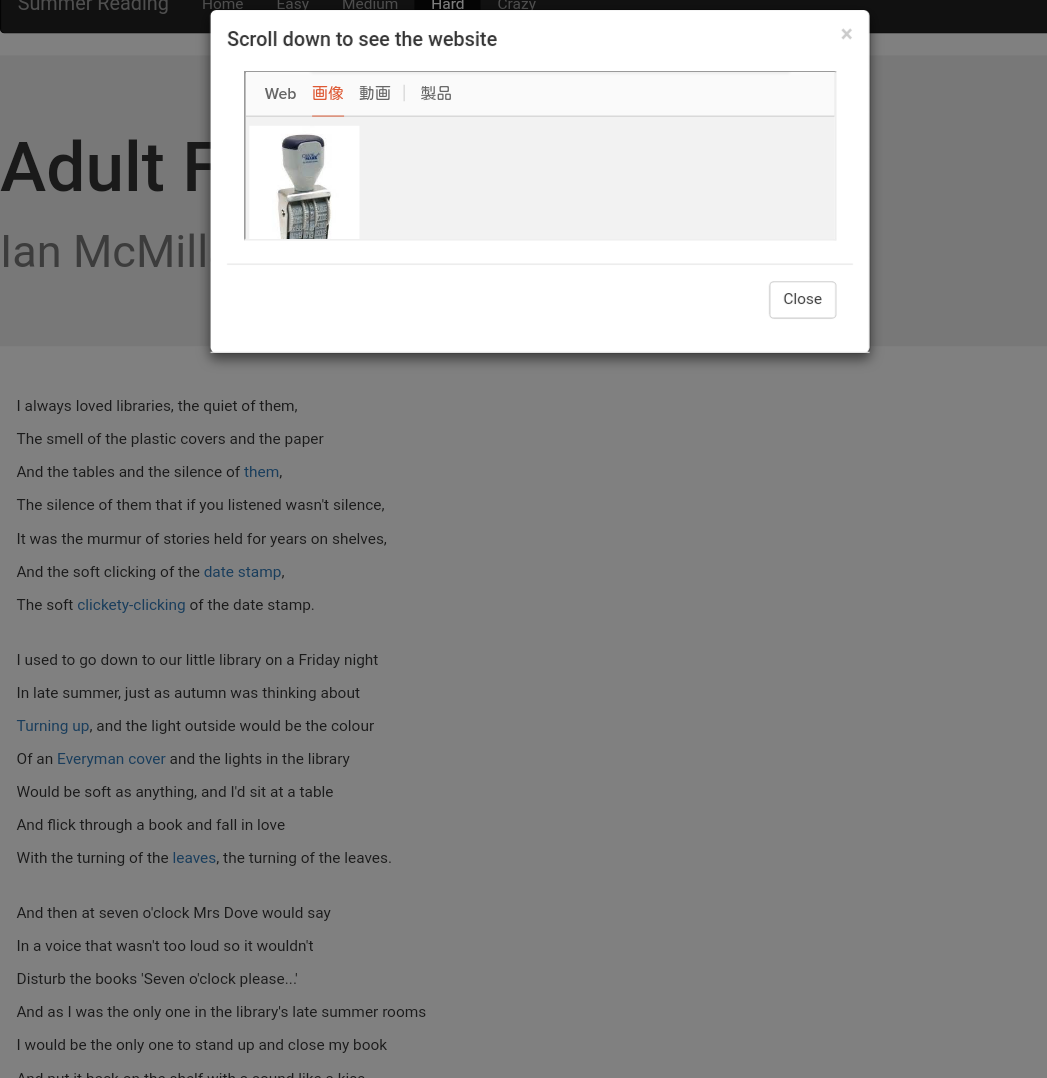
I used the Bootstrap framework to design the site, which means it’s grey but it is responsive to mobile devices.
The websites I used for elaboration were SKELL and Duck Duck Go. Note that Google and Twitter do not let you embed their pages in iframe tags (tags that let you display other websites in your web page).
It’s not perfect; the design could be better and I’d like bigger type in mobile view. For a few hours work, I think I did OK.
References
Long, M. (2015) Second Language Acquisition and Task-Based Language Teaching. London: Wiley.
Beatty, K. (2012) Teaching and Researching Computer Aided Language Learning. London: Routledge.
What does it all have to do with me? A response

Image: Critical Mass bike ride, San Francisco 2007. Public Domain.
Earlier today I read Hana’s post, What does it all have to do with me? You should read it.
She talked about finding debates on how our work, organisations, associations and hierarchies more and more relevant to her and finding it more important to be critical in our profession.
Me, I think I have always been a romantic trapped inside a cynic. You see, I think I am drawn to seeking constant improvement and when others see things as good enough, it sets me off.
There are a million things that I have questions about. Why do so few in Japan’s English conversation schools (eikaiwa) have any knowledge of SLA? Why would you use materials that are designed for a global market if your setting is one with a shared L1? Is pronunciation overlooked because it is difficult to teach well? Is that also the same for listening? Why are Japanese teachers assigned grammar classes and foreign teachers communication classes if the Japanese teachers consult native teachers about grammar so much and native teachers are known for supposedly talking too much? Why do we have a race to the bottom with wages?
It’s talking about these things that gets others going to talk to other people, who in turn talk to others. This can turn into a critical mass. If enough people vote with their feet, change case number come. If we choose to just think things are terrible and say or do nothing, then nothing will happen.
All subjects were undergraduate students…
Or, ‘Really, can we only have research based in universities and nothing from other settings?‘, set in motion by a Twitter conversation (DM) with Louise B.
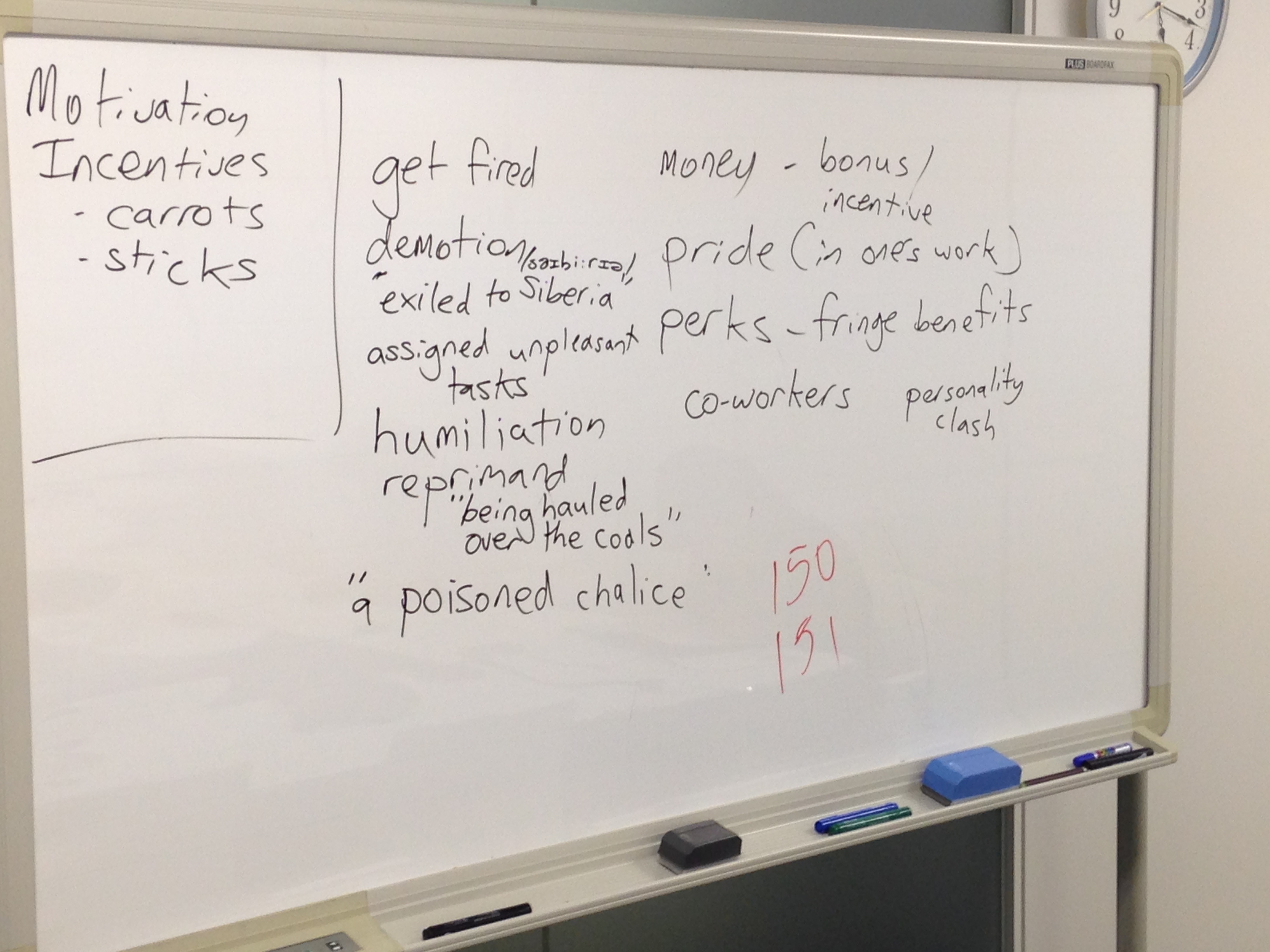
The ELT profession is a confounding one. On the one hand we are the lovely, nice people who help communication, while on the other we are cultural-imperialist scum destroying minority languages in our wake. We preach respect for all but turn a blind eye to the precarious work conditions across the sector. I’ve ranted on these themes before. Today, I want to go on about professionalism, and who gets to be professional in ELT.
While we might call ourselves teachers, how many of us have job titles of ‘Instructor’? How many of us get time to ensure our assessments of learning are as thorough as they could be? How many of us can take findings from our classroom practice and make them known to other teachers, to expand the collective body of knowledge in our field?
University-based teaching staff (but usually only full-time staff) get to do this, but rank-and-file teachers in schools don’t often have the opportunity to do it. The International House organisation of private language academies has a journal that I suppose its DELTA/DipTESOL graduates publish in (as well as staff with MAs). University teachers have various journals such as ELTJ among others.
Who does research in young learners (YL) settings? There must be a number of people who focused on this setting in DipTESOL and DELTA courses, not to mention Masters courses. Why does it never get seen?
Well, SLA-type stuff needs ethics approval. This means giving parents approval slips to sign. How confident are you that your organisation or school would be willing to cooperate in this? Maybe not, I’m guessing. However, research doesn’t have to be just based on how or what learners learn. Case studies might focus on what happens in one class, one course, in one department of a school. Action research and exploratory practice may be teaching focused, with a problem to solve or a theme to explore.
Sharing it widely might be a problem, but it might not be. If you’re in a teaching association you might publish in its journal. If not, do their special interest groups have journals? If not, are there other avenues to explore?
What might be a good idea, and I would love to help set something up like this (though I am aware that I have no time right now) would be an open-peer-reviewed blog, like Hybrid Pedagogy. It would also be nice if it were (voluntary) funded so that reviewers and writers could get paid for work done in the absence of grants and so that hosting costs would be covered.
This would be awesome if it were not one of my ideas that are utopian but too much like hard work. The means of getting it done are there, except cash. Anyone who has ideas, links or support, the comment box is screaming for you!
Here be (Dungeons and) Dragons 8

We’re almost near the end of the first term of my RPG classes and I’m already looking forward to the summative assessment. This is because the students at Ladies’ College of Suburban Tokyo are amazingly motivated for the most part and because the students at University of Outside Tokyo are repeaters who had to retake English Communication, and have shown a great deal of motivation, too, or at least the students who come regularly. My supervising professor at UOT has told me that if one third of the students pass, then that ought to be seen as a success. As it stands, we should be on for 4 definites, 5 probables and 3 unlikelies. At LCST, all the students should pass because everyone does the work, even if it is not always amazing it is always done.
I managed to ask some of the students at UOT the other day if they actually like the course as a game and they said yes. (Of course, they did. They won’t tell you it’s crap because you grade them, Marc.)
What negatives I did get were that one student said he didn’t like recording himself because it was a pain in the arse; however, this student also finds attendance a pain in the arse, too. My most regular attendee said recordings were difficult to manage. This is why I told him to make sure he kept a copy and also sent a copy to me.
Anyway, long story short: still loving it, waiting to see portfolios, deal with the recordings.
I am also giving a workshop on this at JALT Saitama’s Nakasendo conference on Sunday. I have presented before but never run a workshop for more than six teachers at once before. If you read this say hello!
Read Here be (Dungeons and) Dragons previous ‘chapters’: 1, 2, 3, 4, 5, 6, 7
Toward a Sustainable use of Technology in the Language Classroom
Ooh, 21st Century Skills. Apparently critical thinking is one of these but it constantly exasperates me when I see uncritical praise of EdTech in (English) language teaching. Instead of jumping on the new thing, how about some consideration of the following points.
Web applications should involve minimal and preferably no sign-up or tracking.
It should be a personal choice how far one wishes to be tracked and data-mined by third parties. When teachers use services that require sign-up or login using social media we are effectively coercing students to surrender their privacy. If we require use of Facebook logins (and not everyone has one) we are requiring students to be tracked on their computers. If we require Facebook logins on a phone, we require tracking and have given the rights to Facebook to record students by audio or camera without notice (see Facebook terms and conditions, privacy policy if concerned/you don’t believe me).
Sign-ups that require login for monitoring student progress are fine, and students should not feel compelled to unconditionally share this information with others, including teachers. The same liberty as the choice to remain silent in lessons should be extended to use of internet-based services.
This also means that having students upload to YouTube, Instagram, etc. be limited. If uploads are required, an institutional login should be used, although this is imperfect and a private server would be better. This requires greater internet/computing abilities than many have, though it is possible to learn such skills in a weekend. Is it possible for students to gain such time to be critical of internet privacy issues.
Technology should be controlled by the user, not the vendor.
Students should know whether content created using software belongs to them or the vendor. They should know whether the vendor has access to their data, including read/write/sharing permissions. They should be free to refuse this.
Students should not be required to use their own data transfer budget unless agreed prior to the course.
This is a hidden cost. Institutions/organisations should provide secure Wi-Fi.
Technology should be a last resort, not a first.
It is tempting to load a lesson with flashing lights, bells and such, but unless real communication and actual learning occurs, the technology would appear to waste time.
Learner Autonomy ought to be Awesome not Anomie
Ooh, Marc. Your classes always look like you give your students loads of freedom.
Yes, it does look that way but sometimes I still feel like I’m spoonfeeding. So today, I ditched my plan and tried an experiment.
To prepare for a discussion on health. I set stations that the learners would practice at.
- Vocabulary brainstorming at the board.
- Discussion planning.
- Fluency practice.
- Reading.
- Mini-discussion practice.
I suspected that the learners would just pick out single words. I later elicited collocations.
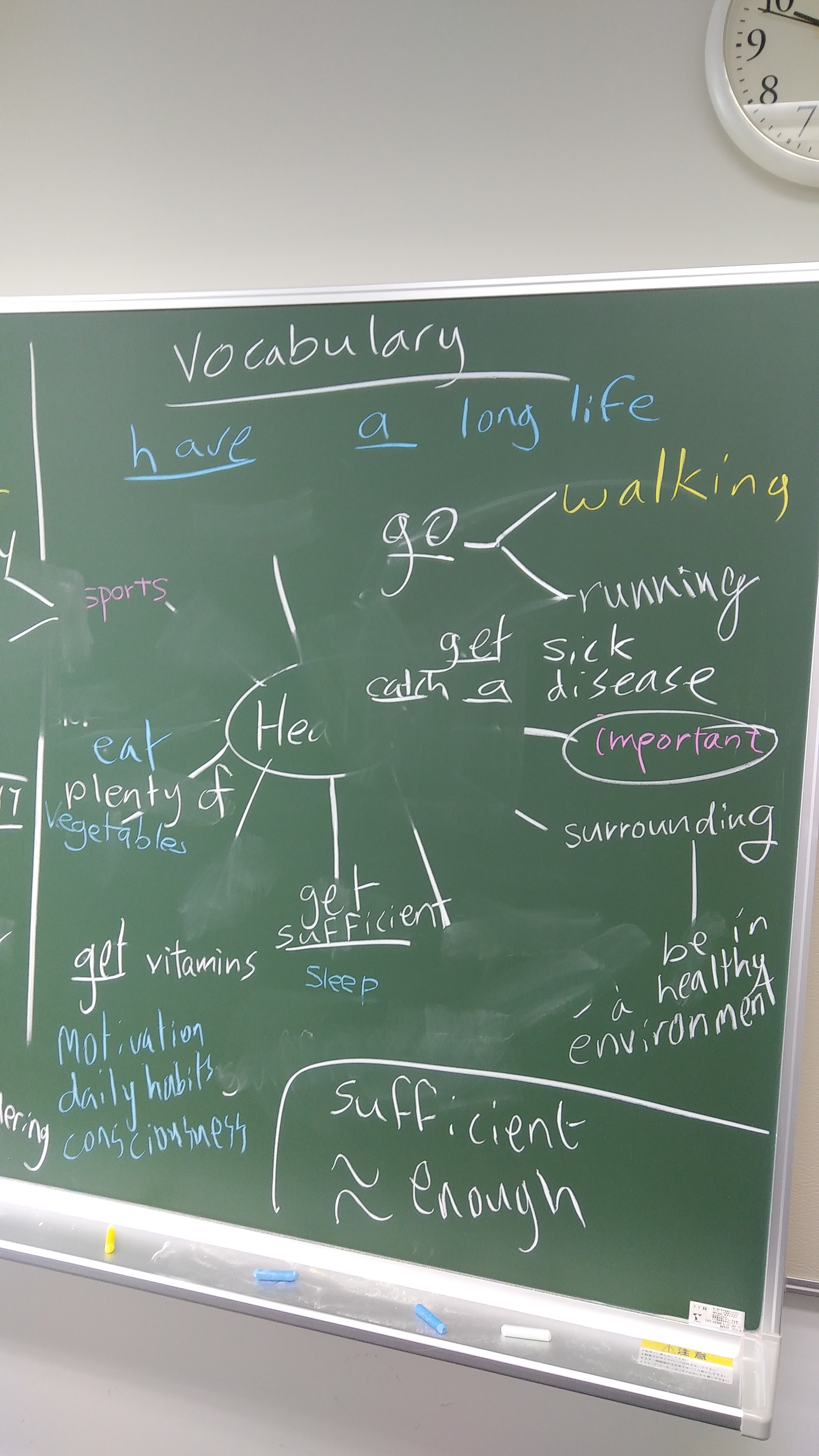
Or functional language planning. What can you say to open a discussion, control a discussion, agree, disagree politely, change the subject and end the discussion. Not amazing.
Teacher led choral, response drills, function drills. Popular with the learners but not my bag. Useful to an extent.
Read the handout then discuss it. Response task on the back. Reading has a gloss and few if any ‘hard’ words.
Set a task (actually part of the exit task). The post-task was to report to me three best balances of nutrition and taste for the discussion.
How did it go?
Well, I’d be lying if I said everything was amazing. The vocabulary was very successful with my morning classes, and OK with the afternoon class. The reading was basically spot on and the mini discussions went well. The discussion planning kind of sucked a bit. Some learners took over and derailed the activity and it took a while to get back on track.
All in all, not bad, though. I’ll probably try something similar again but I definitely want to tweak the language planning, perhaps with a handout. But that takes the autonomy away.